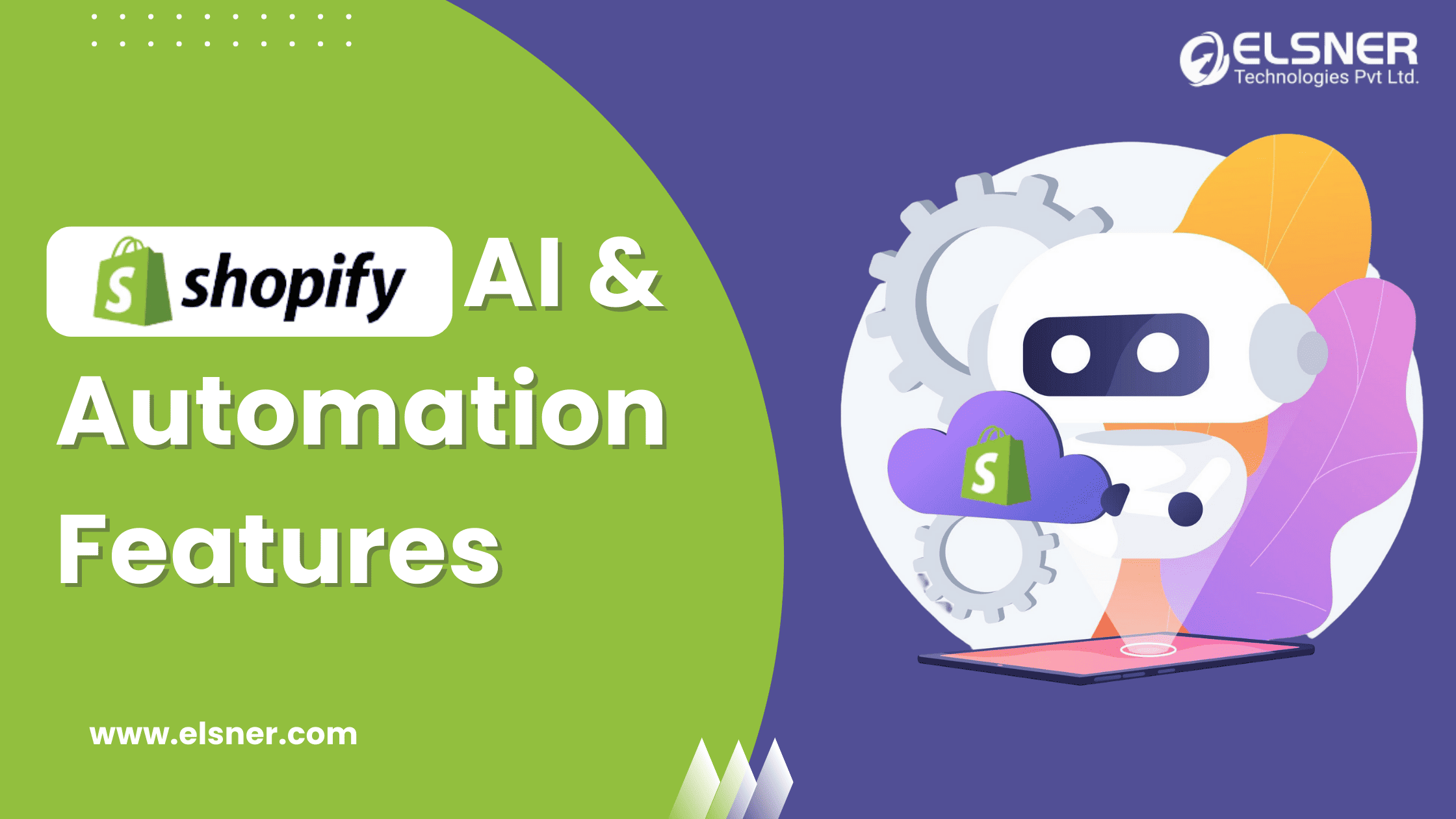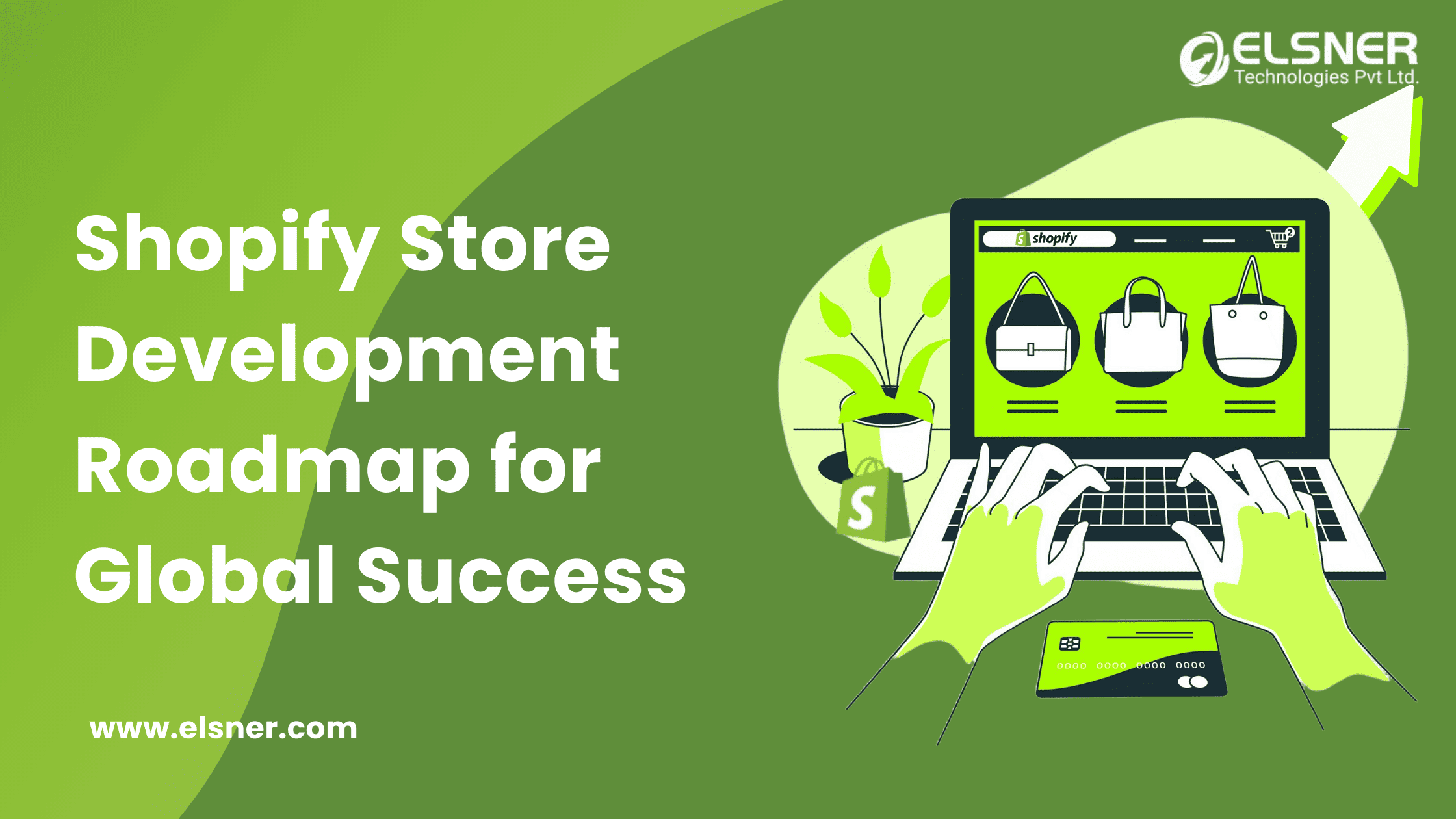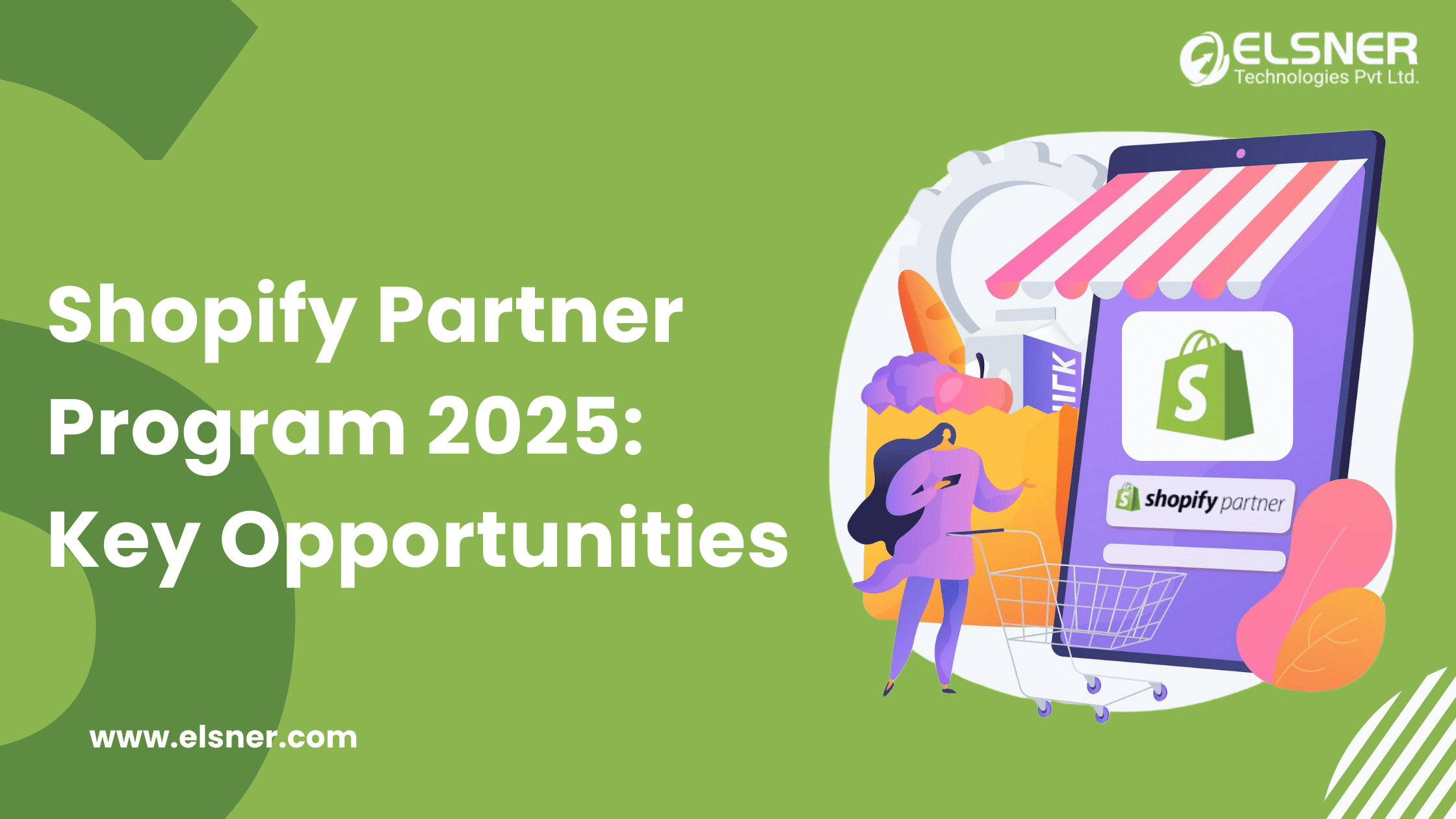- Why Choose Shopify for B2B E-commerce?
- User-Friendly Platform for B2B and B2C Businesses
- Key Features Tailored for B2B
- Scalability for Growing Businesses
- Shopify B2B vs. Competitors: A Quick Comparison
- Key Features of Shopify for B2B Success
- Custom Pricing
- Private Storefronts
- Flexible Payment Options
- Integration Capabilities
- Steps to Build a B2B E-commerce Store with Shopify
- Step 1: Choosing the Right Shopify Plan
- Step 2: Setting Up Custom Pricing and Client Portals
- Step 3: Adding Quick Reorder and Bulk Purchase Options
- Step 4: Optimizing for Mobile and User-Friendly Navigation
- 4. Strategies to Scale Your B2B E-commerce Business
- Enhance Customer Experience
- Leverage Marketing Automation
- Expand Globally
- Data-Driven Decision Making
- 5. Common Challenges in B2B E-commerce Shopify and How Shopify Helps Overcome Them
- Challenge: Managing Bulk Orders and Complex Pricing
- Challenge: Integrating Multiple Tools
- Challenge: Scaling Infrastructure
- “Take Your Ecommerce Store to the Next Level with Shopify Experts”
- 6. Case Studies: B2B Success Stories on Shopify
- Case 1: Wholesale Distributor Expands Internationally
- Case 2: Manufacturer Streamlines Operations
- 7. Future Trends in B2B E-commerce with Shopify
- Personalization and AI-Driven Customer Experiences
- Rise of Mobile-First B2B Strategies
- Sustainability and Eco-Friendly Practices in B2B Commerce
- Final Verdict
- Need To Know More
Imagine having a platform that does more than just host your E-commerce store. Specifically, one that empowers you to expand, adapt, and excel in today’s digital-first marketplace. This is what Shopify B2B delivers. Whether you are starting fresh or growing rapidly, Shopify’s features make it a top choice for B2B success. Particularly for businesses in the B2B space, Shopify offers tailored solutions that make scaling simple. With tools like Shopify Plus B2B features, including custom pricing and private storefronts, your business gains the flexibility needed to thrive.
“The global B2B E-commerce market is set to surpass $20.9 trillion by 2027, and businesses that fail to digitize are leaving money on the table.”
This blog will guide you step by step through building a successful Shopify B2B store. Specifically, you will learn how to leverage B2B on Shopify Plus for scalable success. Additionally, we will cover strategies, common challenges, and real-world case studies to inspire your journey. Ready to get started? Let’s dive in:
Why Choose Shopify for B2B E-commerce?
Choosing the right platform matters in B2B E-commerce Shopify. Shopify offers tools and scalability designed to drive success. Let us explore why Shopify B2B is particularly suited for businesses.
User-Friendly Platform for B2B and B2C Businesses
Shopify’s platform is easy to use. Non-technical users can specifically manage tasks without hassle. Uploading products, tracking inventory, and managing orders typically become simple. Businesses often turn to Shopify development services to streamline operations. A Shopify B2B store particularly makes daily processes easier for businesses of all sizes.
Key Features Tailored for B2B
Shopify Plus B2B features address the specific needs of B2B businesses. Some of the most valuable features include:
- Wholesale Pricing: Tiered pricing structures specifically encourage bulk purchases. This builds stronger relationships with B2B clients.
- Custom Catalogs: Personalized catalogs cater particularly to specific clients. This creates a professional and tailored shopping experience.
These features make Shopify for B2B a particularly effective platform. Businesses often work with Shopify development companies to implement these tools efficiently.
Scalability for Growing Businesses
Scaling a business is challenging. Shopify typically handles growth with ease. The platform’s infrastructure supports high-traffic and bulk orders. Shopify Plus B2B provides solutions for entering new markets and handling increased demand.
Tools like CRMs and ERPs integrate seamlessly with Shopify. These integrations typically simplify business operations further. Many businesses use Shopify customization techniques to address unique challenges as they grow.
Shopify B2B vs. Competitors: A Quick Comparison
|
Features |
Shopify B2B |
Other Platforms |
|
User-Friendly Interface |
Yes |
Varies |
|
Tailored B2B Features |
Yes (e.g., wholesale pricing) |
Limited or add-ons |
|
Scalability |
Excellent (Shopify Plus) |
Moderate |
|
Integration Options |
Robust app ecosystem |
Limited or proprietary |
|
Support |
24/7 support |
Varies |
Investing in a Shopify B2B store particularly helps businesses thrive. Hiring Shopify developers or working with Shopify website design experts ensures the best results. By using Shopify’s tools, your business will scale effectively and achieve long-term success.
Key Features of Shopify for B2B Success
Shopify for B2B offers targeted features that allow businesses to build efficient and client-focused online stores.
Custom Pricing
Custom pricing is one of the standout Shopify Plus B2B features. Businesses can create tiered pricing structures specifically designed for wholesale customers. Offering bulk discounts encourages larger orders and builds stronger client relationships. For example, creating distinct price tiers for various order sizes caters to the specific needs of diverse clients. Shopify development services can help implement this feature smoothly.
Private Storefronts
Shopify B2B stores offer private storefronts exclusively for B2B clients. These storefronts allow businesses to display personalized catalogs and pricing options that are not accessible to the public. This feature is particularly valuable for businesses seeking professional and exclusive client relationships. Hiring Shopify developers ensures these private storefronts are set up securely and effectively.
Flexible Payment Options
Shopify Plus B2B supports flexible payment integrations. Businesses can connect with multiple payment gateways to offer options like net terms, credit cards, and ACH transfers. These options are typically critical for B2B clients who expect smooth payment processes. By leveraging Ecommerce development services, businesses can enhance client satisfaction through optimized payment systems.
Integration Capabilities
Shopify excels at integrating essential business tools. The platform connects seamlessly with CRMs, ERPs, and other systems to streamline operations. These integrations specifically simplify tasks such as inventory management, order processing, and customer tracking. Companies often use Shopify customization techniques to tailor these integrations to their specific workflows. This approach enhances operational efficiency and minimizes manual errors.
|
Shopify B2B Features |
Benefits |
|
Custom Pricing |
Encourages bulk purchases and loyalty |
|
Private Storefronts |
Offers exclusivity for B2B clients |
|
Flexible Payment Options |
Simplifies transactions for businesses |
|
Integration Capabilities |
Enhances operational efficiency |
By utilizing these features, businesses can create a Shopify B2B store that meets their clients’ unique needs. Collaborating with a Shopify development company or hiring Shopify experts ensures these tools are implemented effectively. With the right strategy, businesses can unlock the full potential of B2B E-commerce on Shopify Plus.
Steps to Build a B2B E-commerce Store with Shopify
 Building a B2B E-commerce store on Shopify involves specific steps. Each step particularly demands attention to detail to create a platform tailored to your business needs. Let us explore the process.
Building a B2B E-commerce store on Shopify involves specific steps. Each step particularly demands attention to detail to create a platform tailored to your business needs. Let us explore the process.
Step 1: Choosing the Right Shopify Plan
Start by selecting the most suitable Shopify plan. Shopify Plus is typically the best choice for advanced B2B needs. This plan is specifically designed to manage the complexities of B2B operations. Shopify Plus B2B features include wholesale pricing, custom workflows, and scalability options. Consulting with a Shopify development company is particularly helpful in choosing a plan that matches your goals.
Step 2: Setting Up Custom Pricing and Client Portals
Once you finalize the plan, focus on custom pricing. Shopify B2B allows businesses to create tiered pricing structures catering specifically to bulk buyers. Setting up exclusive client portals ensures a personalized shopping experience. These portals typically enhance client satisfaction by providing tailored catalogs and pricing. To implement these features effectively, you may need to hire Shopify developers or experts who specialize in B2B E-commerce Shopify.
Step 3: Adding Quick Reorder and Bulk Purchase Options
Streamlining the purchasing process is particularly crucial for B2B clients. Add features such as quick reorder buttons and bulk purchase options. These tools are specifically designed to simplify the shopping experience for frequent buyers. Shopify Plus B2B features support these functionalities effectively. By applying Shopify customization techniques, businesses can create an intuitive purchasing flow that typically boosts repeat orders.
Step 4: Optimizing for Mobile and User-Friendly Navigation
Mobile optimization is particularly important in today’s E-commerce landscape. Design your Shopify B2B store with responsive themes to ensure smooth navigation on all devices. User-friendly navigation is typically achieved through clear menus, search functions, and intuitive layouts. Collaborating with a Shopify website design expert can ensure your store meets these standards. Shopify theme development can also enhance usability and appeal.
|
Steps to Build a Shopify B2B Store |
Key Actions |
Benefits |
|
Step 1: Choosing the Right Plan |
Select Shopify Plus for advanced features |
Scalability and tailored B2B solutions |
|
Step 2: Custom Pricing & Portals |
Implement tiered pricing and client portals |
Personalized and exclusive shopping |
|
Step 3: Quick Reorder Options |
Add tools for bulk purchases and reorders |
Simplified and efficient transactions |
|
Step 4: Mobile Optimization |
Optimize for mobile and user-friendly design |
Improved customer experience and retention |
By following these steps, you will create a Shopify B2B store that is both efficient and client-focused. Hiring Shopify experts or partnering with an E-commerce development services provider will specifically streamline the process. With the right approach, your B2B E-commerce Shopify business can thrive on Shopify Plus.
4. Strategies to Scale Your B2B E-commerce Business
Scaling your Shopify B2B store requires a clear strategy. Each step should focus on delivering value. Here’s how you can do it:
Enhance Customer Experience
Simplify navigation to create a seamless experience for your clients. Particularly, organize product categories clearly. Use Custom Shopify theme development techniques to build intuitive menus. Include detailed product information like dimensions, materials, and images. Customers typically trust businesses that prioritize transparency.
Leverage Marketing Automation
Marketing automation can transform your Shopify B2B store. Use Shopify lead generation strategies to connect with clients. Personalized email campaigns specifically tailored to individual customer needs work effectively. Retargeting ads help recover abandoned carts. Promotions designed for specific buyer groups typically drive repeat sales effortlessly.
Expand Globally
Your Shopify B2B store can cater to a worldwide audience. Shopify Plus B2B features like multi-currency support makes global operations easier. Localized storefronts, specifically customized for regional preferences, increase client trust. Offering native payment options particularly ensures smooth transactions.
Data-Driven Decision Making
Shopify’s analytics tools give you actionable insights. Monitor sales trends closely. Identify which products perform best. Use these insights to create targeted marketing campaigns. This approach particularly helps you scale your store efficiently.
|
Strategy |
Benefit |
|
Simplify Navigation |
Better user experience |
|
Marketing Automation |
Increased engagement |
|
Global Expansion |
Wider customer reach |
|
Data-Driven Insights |
Smarter decision-making |
5. Common Challenges in B2B E-commerce Shopify and How Shopify Helps Overcome Them
Even the best businesses face challenges. Shopify’s tailored features are designed to address these hurdles specifically. Let’s look at some common challenges and how Shopify tackles them:
Challenge: Managing Bulk Orders and Complex Pricing
Handling bulk orders can be daunting. Businesses typically struggle with setting up custom pricing tiers and managing large purchase volumes. Shopify’s B2B store features particularly simplify this process. You can use its wholesale pricing tools and custom checkout options to streamline orders. This ensures your clients enjoy a smooth experience, no matter the order size.
Challenge: Integrating Multiple Tools
B2B E-commerce often requires using several systems together — CRM, ERP, and inventory management tools, to name a few. Shopify for B2B provides robust integration capabilities. Specifically, its app ecosystem connects your store with essential tools seamlessly. This minimizes manual work and enhances operational efficiency.
Challenge: Scaling Infrastructure
As businesses grow, maintaining site performance can become challenging. Shopify Plus B2B ensures scalability without compromising speed or reliability. Whether during peak seasons or global expansion, you can trust Shopify’s infrastructure to handle it all effortlessly.
|
Challenge |
Solution |
|
Managing bulk orders |
Wholesale features, custom checkout |
|
Integrating multiple tools |
Robust app ecosystem |
|
Scaling without performance loss |
Shopify Plus scalability |
These features make Shopify an invaluable partner for overcoming challenges in the B2B E-commerce landscape.
“Take Your Ecommerce Store to the Next Level with Shopify Experts”
Whether you’re launching a new store or optimizing an existing one, our Shopify developers are here to help.
6. Case Studies: B2B Success Stories on Shopify
Case 1: Wholesale Distributor Expands Internationally
A wholesale distributor based in the United States faced a significant challenge in expanding to the European market. The business needed a localized shopping experience for its new customers. Using Shopify Plus B2B features, they set up storefronts tailored to specific regions. Each storefront offered multi-currency support, which made transactions seamless for clients across different countries.
This strategy particularly helped the business to build trust among its European clients. Shopify’s analytics tools also provided actionable insights, enabling the distributor to fine-tune marketing or Shopify lead generation strategies for each region. Within one year, the distributor achieved a remarkable 45% increase in sales. This story highlights how B2B on Shopify Plus can specifically drive global expansion.
|
Key Takeaways |
Results |
|
Localized storefronts |
Enhanced regional customer trust |
|
Multi-currency support |
Simplified international transactions |
|
Shopify analytics |
Targeted regional marketing strategies |
Case 2: Manufacturer Streamlines Operations
A manufacturing company wanted to improve efficiency in managing bulk orders. They typically faced issues with errors caused by manual data entry. By adopting Shopify B2B, they integrated their CRM system directly into their Shopify store. This integration ensured that inventory updates and customer information synchronized automatically.
The company also utilized private storefronts to offer personalized product catalogs to their clients. These features reduced order errors by 60% and significantly improved customer satisfaction. Shopify’s ability to streamline operations proved to be a game-changer for this manufacturer.
|
Key Takeaways |
Results |
|
CRM and inventory integration |
Reduced manual errors |
|
Private storefronts |
Enhanced client experience |
|
B2B on Shopify Plus features |
Improved operational efficiency |
These case studies clearly demonstrate the potential of Shopify B2B to solve real-world business challenges. Whether you are planning to scale globally or optimize your operations, Shopify offers tools that are specifically designed to meet your unique needs. Partnering with a reliable Shopify development company ensures that your business gets the most out of these features.
7. Future Trends in B2B E-commerce with Shopify
Personalization and AI-Driven Customer Experiences
The future of B2B commerce is personalization. Businesses now use AI to offer tailored recommendations. With Shopify’s AI tools, businesses provide curated product suggestions based on browsing history. This feature particularly boosts client satisfaction and increases repeat purchases. Shopify B2B stores also offer customized pricing, making transactions more client-focused.
Rise of Mobile-First B2B Strategies
Mobile usage isn’t limited to retail customers. B2B buyers are increasingly using mobile platforms for convenience. B2B on Shopify Plus features ensure mobile-optimized stores. These typically include responsive designs and fast-loading pages. Mobile-first strategies enhance user experience and contribute significantly to conversion rates.
Sustainability and Eco-Friendly Practices in B2B Commerce
Eco-conscious buyers dominate the market. Shopify development services allow businesses to highlight sustainability efforts. Features like paperless invoicing and eco-friendly packaging options attract modern buyers. Shopify B2B stores can also offer carbon-neutral shipping. Sustainability is no longer a trend — it’s a necessity that Shopify helps businesses implement seamlessly.
These trends highlight Shopify’s transformative role in B2B E-commerce. Whether through personalization, mobile-first strategies, or sustainability, Shopify ensures businesses stay competitive. Partnering with a trusted Shopify development company helps you implement these trends effectively and create a thriving E-commerce business.
Final Verdict
Shopify offers immense opportunities for B2B E-commerce businesses. It particularly provides tools that simplify bulk orders, enable personalized pricing, and ensure seamless integration with other systems. Businesses generally benefit from Shopify’s scalability and user-friendly features. B2B on Shopify Plus features, such as multi-currency support and advanced analytics, empower businesses to grow strategically.
If you are looking to optimize your E-commerce strategy, Shopify offers the perfect platform. Its focus on personalization and innovation allows you to create customer-centric experiences. Hiring a trusted Shopify development company can help you maximize these benefits. Contact us today to explore professional Shopify B2B development services and start building your success story.
Need To Know More
- Why is Shopify the ideal platform for B2B E-commerce businesses?
Shopify provides features like custom pricing, private storefronts, and advanced analytics. These tools specifically cater to the needs of B2B businesses. Shopify Plus B2B features allow businesses to scale efficiently.
- What are the key features of Shopify that cater specifically to B2B needs?
Shopify Plus B2B features include multi-currency support, tailored pricing, and private storefronts. These features generally address common B2B requirements like bulk order handling and personalized catalogs.
- How can I set up custom pricing and private storefronts on Shopify for B2B clients?
Shopify B2B stores offer built-in tools for creating custom pricing rules and private storefronts. These tools typically simplify client segmentation and ensure a personalized shopping experience.
- What are the steps to build a successful B2B E-commerce store on Shopify?
Start by identifying your target audience and their specific needs. Use Shopify Plus B2B features to design a user-friendly storefront. Consider hiring Shopify experts to customize your store and integrate advanced functionalities.
- How can Shopify help scale a B2B E-commerce business effectively?
Shopify Plus ensures scalability without compromising performance. It particularly offers robust analytics, allowing businesses to make data-driven decisions and expand their reach effectively.
- What are some common challenges in B2B E-commerce and how does Shopify address them?
Challenges include managing bulk orders, integrating tools, and scaling infrastructure. Shopify B2B features, like wholesale pricing and app integrations, typically address these issues efficiently.
- How can data-driven decision-making enhance B2B E-commerce success with Shopify?
Shopify’s analytics tools provide insights into customer behavior and sales trends. This data generally helps businesses optimize their strategies and improve ROI effectively.

About Author
Pankaj Sakariya - Delivery Manager
Pankaj is a results-driven professional with a track record of successfully managing high-impact projects. His ability to balance client expectations with operational excellence makes him an invaluable asset. Pankaj is committed to ensuring smooth delivery and exceeding client expectations, with a strong focus on quality and team collaboration.




